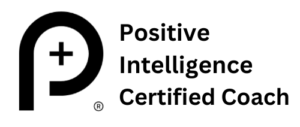
The 450-mile ride home in the medical transport van is behind us. The hardest part was the slightly over-the-top sense of humor of the paramedic. Not a bad problem to have in the greater scheme of things.
When I got the phone call a week ago that my 82-year-old mother had fallen while on vacation and broken her femur, the issues seemed thoroughly overwhelming. Her first words to me over the phone were “Why did this have to happen here?”
A week later, with her safely back home as of late last night, I have many answers to that question of “why.” While this won’t be a polished, ready-for-prime-time lessons learned piece, it will be a start.
10 Tips to Help a Loved One During a Medical Situation
1) Stay in the present moment. It’s natural to jump all the way to “Oh my god, how will she get through the recovery period? How many months will that take?” Rein in that tendency and take it one issue at a time, letting go of the questions over which you have no control at the current juncture.
2) Watch your language. I was amazed at the difference in my stress level that mere word choices made. Most of us move immediately to crisis language: “What a disaster! This is a total mess! What a nightmare!” This sort of language made my body tense and paralyzed my problem-solving momentum. If I kept the semantics to “This is a difficult situation that we can get through by solving one issue at a time,” I was able to stay relaxed, clear-headed, prepared for decision-making, and able to reassure my mother.
3) Remember that energy is contagious. If you want to keep your loved one calm, stay calm yourself. It’s the only control you have over someone else’s state of mind. This goes for hospital staff too. We were nice to people and they were nice back. Plain and simple.
4) Rather than try to distract your loved one from pain, ask questions about it. My mother was complaining about pain in her feet, but then noticed that pain meds didn’t help. With a few questions, she clarified that the discomfort in her feet was acute numbness, not pain, which the doctors were able to treat separately. Getting curious about the nature of pain and discomfort, including noticing the ebb and flow of it (when it starts AND when it subsides), reduces fear and anxiety.
5) Know when to give them space. I can be annoying for people going through a difficult time since years of mindfulness practice have wired me for extreme optimism. I can find silver linings in pretty much any situation, but I need to know when to shut up and simply allow my loved-one to vent. I took a walk from time to time to give her a break.
6) Take care of yourself so that you can take better care of your loved one. I was really proud of how well I took care of myself while living at the hospital for six days. I made sure to eat three meals a day. I accepted the offer of my cousin’s friend to sleep at her place one night and shower. The night before we left I took myself out to a really nice dinner. It was like a spa treatment. Yay me!
7) Experiment with your mindfulness practice toolbox. Sleeping in a recliner chair by a hospital bed and not knowing when nurses might enter the room made sitting meditation tough. I squeezed in one session at the friend’s house, but otherwise used focused breathing techniques during the day and when I was going to sleep. I tried to eat mindfully and sat outside a few times to get a little dose of nature.
8) Exercise. The morning after sleeping at the friend’s house I did some stretching and yoga but the hospital setting wasn’t conducive to that sort of thing (the thought of catching one of those superbugs or MRSA germs lurking on the floor kind of creeped me out). Fortunately I had thrown my running clothes into my bag, so when conditions were right (she was comfortable, the weather was cool enough, and we had seen all the doctors for the day) I was able to escape for 30 minutes of running around the large Rhode Island Hospital complex. That run cleared the sticky worry energy from my system, re-grounded me in the present moment, recharged my batteries, and cleansed me at the soul-level.
9) Practice gratitude. Notwithstanding #5, this is, of course, the biggie. I could write a whole book of gratitude lessons from this experience, but I will keep it to two: 1) the hospital staff—surgeons, nurses, geriatric team, and physical therapists—was absolutely stellar; and 2) they discovered my mother had some small blood clots in her lung that had been there before the accident. She’s now being treated for those, so once the leg break is healed, she’ll come out of this better than before.
10) Take action where you can, then let go of the rest. We had researched the surgeon we were told would be doing the surgery, both online and through family friends. Moments before the surgery, we were introduced to another surgeon, since the first doc had an emergency come up. We could have panicked and fretted about this, but all we could do at that point was ask him a few questions about his background, explain that we had expected his boss to do the surgery, and, after listening to his caring response, let it go. We couldn’t have been happier with the results, both from a surgical standpoint and his compassionate interaction with us.
My mother is now safely ensconced in the rehabilitation center at her retirement community, surrounded by friends and staff members who love her. I’m so proud of her for making it through the first part of this journey with strength, resilience, and with her sense of humor in tact. Please send your positive vibes her way!
***
If you enjoyed today’s post and are not yet a subscriber, please join my Readers Circle and receive my free ebook Six Playfully Mindful Strategies to Beat Procrastination and Boost Productivity. You’ll also receive updates on my new book, Blooming into Mindfulness, weekly blog posts, and photography event news. Email is much more reliable than social media in getting information to you in a timely fashion, so sign up to make sure you’re in the loop! (I promise not to share your address or send you spam.)
And if you know someone else who might benefit from an extra dose of calm in their lives, please spread the word! Social media likes and shares are always appreciated.
Finally, if you find typos anywhere on my site, I’d be grateful if you let me know. I hate typos! Contact me so that I can correct the error. Thank you!


